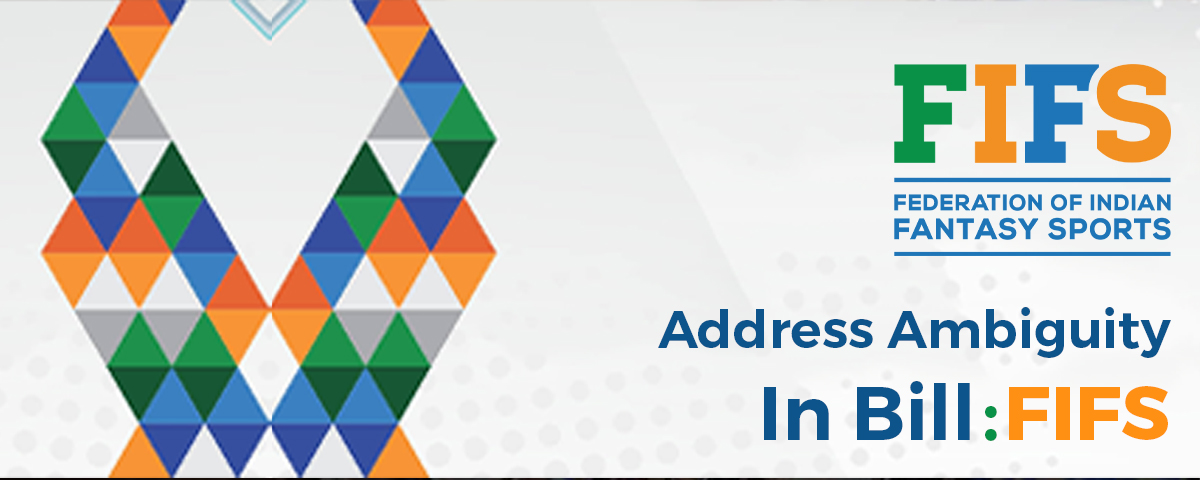FIFS Urges The Karnataka Govt to Address Ambiguity In Bill Prohibiting Internet Gambling
Karnataka’s constituent body passed the Karnataka Police (Amendment) Bill, 2021 on Tuesday, outlawing all kinds of internet gambling for monetary gain in the state. The law, which was introduced on September 17, proposes a maximum sentence of three years in prison and a fine of up to Rs 1 lakh for anyone who engages in digital gambling or betting in the region. The bill intends to alter gaming and police legislation in order to outlaw all kinds of internet gambling, betting, and wagering (“the Bill”). As a well-intentioned regulation, the preceding Bill causes confusion and ambiguity for genuine online fantasy sports enterprises. While the government’s worries are understandable, the bill appears to be misplaced in that it penalizes respectable enterprises by lumping them in with illegitimate online gaming, betting, and wagering services. The law advisers of FIFS (Federation of Indian Fantasy Sports) believe that the bill’s agenda contradicts a slew of court decisions. In reality, the Supreme Court has affirmed the legality of online fantasy sports in a ruling dated 30 July 2021, noting that the question of whether fantasy sports format constitutes gambling, betting, or wagering is no longer res integra. Furthermore, the Supreme Court upheld the verdicts of the Rajasthan, Punjab, and Haryana High Courts, as well as the Bombay High Court. In its ruling dated 22 July 2021, the Rajasthan High Court stated (excerpt below):
“We are, therefore, of the view that offering of online fantasy sports in accordance with the Charter of the FIFS has already been judicially recognized as a business and consequently, entitled to protection under Article 19(1)(g) of the Constitution of India and the prayer seeking directions to the State Government to prohibit the same would be opposed to Article 14 and 19(1)(g) of the Constitution of India.”
What About Fantasy Sports?
Online fantasy sports is a ground-breaking category of virtual sports interaction systems based on legally recognized live sporting events. The Bill appears to attempt to treat unequals equally by defining “gaming” in an overbroad and vague manner, which would be a violation of Article 14 of the Constitution. Because of the unique nature of fantasy sports, FIFS members encourage the government to recognize and respect the judicial and constitutional safeguards provided to its commercial operations. Many of FIFS’s member companies have offices in IT and ITES centers where they create and develop software solutions.
According to a NITI Aayog research on online fantasy sports, the industry has the potential to create over 12,000 new highly skilled technical jobs in the next few years, attract over Rs 10,000 crore in FDI, and pay over Rs 13,500 crore in annual taxes. FIFS and its members think that certainty is essential to the rule of law, and so the Bill must give certainty and clarity to companies, the investment community, and services in order for the sector to flourish and evolve in an orderly manner. By promoting, investing, and growing the sports ecosystem, FIFS members have done a great service both nationwide and in the state of Karnataka. Almost every major sporting event, league, international, and national-level competition has investments and relationships with one of our member firms. Such perplexing messages from the Karnataka administration may stymie the development of sports in the state.
“Today, India is the world’s largest market for fantasy sports in terms of user base, and the Indian entrepreneurs who have established these firms exemplify the prime minister’s vision of Atma Nirbhar Bharat, which is technology produced in India, for India, and by Indians. It is critical that the State Government realizes that the unintended beneficiaries of this bill would be grey market platforms and offshore online gambling/betting businesses that represent a major risk to Indian users,” FIFS said in a statement. FIFS urged the Karnataka government to remove any ambiguity or confusion in the law in order to safeguard the continuation and expansion of the state’s fantasy sports industry. Former Karnataka Minister for IT, Tourism, and Social Welfare Priyank Kharge rushed to Twitter to condemn the law in a series of tweets. “Instead of a blanket ban on all online games, the government should be more precise and identify those that encourage betting. Instead of a measure that would not stand the test of time, the government should create a committee with industry stakeholders and come up with legislation that restricts internet betting,” he said.
Will the rest of the states follow suit?
Karnataka is not the first state to make a decision of this nature. This follows the Tamil Nadu government’s plan to issue an ordinance prohibiting internet gambling in November 2020, and Kerala’s ban on online rummy games earlier this year. However, analysts feel that these initiatives are unlikely to gain traction, particularly in light of the aforementioned Supreme Court judgment. Last month, the Madras High Court overturned the Tamil Nadu Gaming and Police Laws (Amendment) Act, 2021, which prohibited staked online games like rummy and poker.
The Tamil Nadu Gaming and Police Laws (Amendment) Act, 2021, revised the Tamil Nadu Gaming Act, 1930, in Part II. The Court ruled that the Amendment Act’s entire prohibitions on for-profit online skill games were unreasonable, disproportionate, and obviously arbitrary, violating Article 19(1)(g) of the Constitution.

